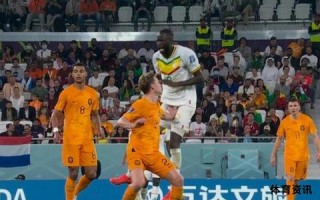The Significance and Impact of FIFA World Cup: Decoding the Acronym
The FIFA World Cup, often simply referred to as "World Cup," is the most prestigious tournament in international football. The acronym "FIFA" stands for Fédération Internationale de Football Association, the global governing body that organizes this quadrennial spectacle. Since its inception in 1930, the World Cup has transcended sports, becoming a cultural phenomenon that unites nations, inspires generations, and redefines the boundaries of athletic excellence. The tournament’s abbreviation—often seen as "FIFA WC"—carries immense weight, symbolizing passion, competition, and the unifying power of football.
The Origins and Evolution of FIFA

The Fédération Internationale de Football Association (FIFA) was founded in 1904 to oversee international football competitions and standardize the rules of the game. Initially, FIFA had only seven member nations, but its influence grew exponentially, culminating in the organization of the first World Cup in Uruguay in 1930. The tournament was conceived as a way to bring together the best national teams in a single competition, fostering global camaraderie through sport.
Over the decades, FIFA expanded its reach, introducing new formats, increasing the number of participating teams, and embracing technological advancements like VAR (Video Assistant Referee). The acronym "FIFA" has become synonymous with football governance, though it has also faced controversies regarding corruption and transparency. Despite these challenges, the organization remains central to the sport’s development, ensuring the World Cup’s continued prominence.
The Cultural and Economic Impact of the World Cup

The World Cup is more than just a sporting event—it is a global celebration that influences culture, politics, and economies. Host nations invest billions in infrastructure, stadiums, and security, hoping to showcase their capabilities on the world stage. The tournament boosts tourism, creates jobs, and stimulates local businesses, leaving a lasting legacy long after the final whistle.
Culturally, the World Cup fosters national pride and unity. Iconic moments—such as Brazil’s jogo bonito, Maradona’s "Hand of God," or Zidane’s headbutt in 2006—are etched into collective memory. The event also serves as a platform for social messages, from anti-racism campaigns to calls for gender equality. The abbreviation "FIFA WC" thus represents not just a competition but a catalyst for change and shared human experiences.
The Tournament’s Format and Global Reach
The World Cup’s structure has evolved significantly since 1930. Originally featuring 13 teams, it now includes 32 nations (expanding to 48 in 2026), competing in a month-long festival of football. Qualifying matches span years, involving hundreds of countries across FIFA’s six continental confederations (e.g., UEFA, CONMEBOL, CAF). The acronym "WC" is universally recognized, transcending language barriers and uniting fans worldwide.
The tournament’s group stage and knockout rounds create dramatic narratives, where underdogs defy expectations and giants fall unexpectedly. The abbreviation "FIFA WC" evokes these stories of triumph and heartbreak, reinforcing football’s unpredictability and emotional depth. The competition’s global viewership, exceeding 3.5 billion people, underscores its unparalleled reach and influence.
Controversies and Challenges Surrounding FIFA
Despite its prestige, the World Cup has faced significant criticism. Allegations of bribery in host nation selection, labor rights abuses in construction projects (particularly in Qatar 2022), and FIFA’s opaque governance have marred its reputation. The acronym "FIFA" has, at times, been associated with scandal rather than sport, prompting calls for reform.
Yet, the tournament endures, adapting to modern demands. Initiatives like sustainability programs, human rights pledges, and expanded women’s football investments aim to restore trust. The World Cup’s abbreviation remains powerful, but its future depends on balancing commercial interests with ethical responsibility.
Conclusion: The Enduring Legacy of the FIFA World Cup
The acronym "FIFA WC" encapsulates a century of football history, embodying athletic brilliance, cultural exchange, and occasional controversy. As the tournament grows, its impact extends beyond the pitch, shaping societies and inspiring future generations. Whether celebrated or scrutinized, the World Cup remains the pinnacle of global sport—a testament to football’s unifying power.







